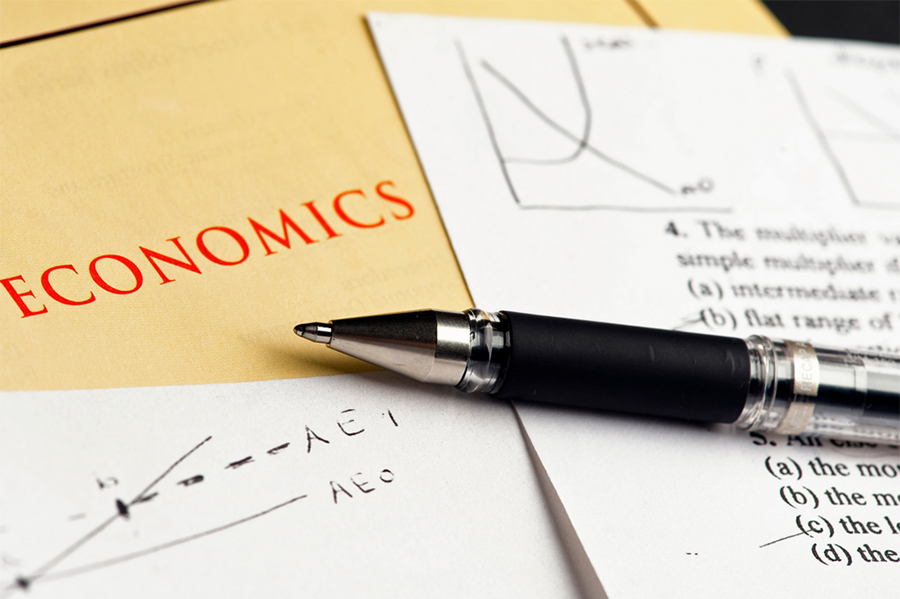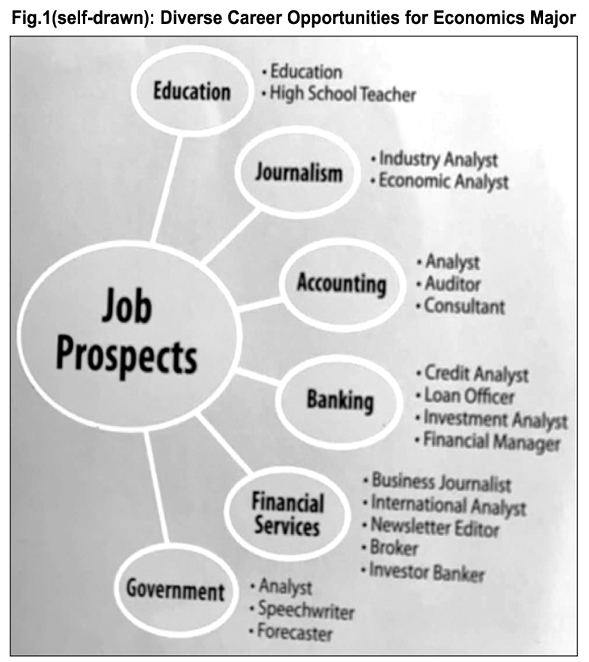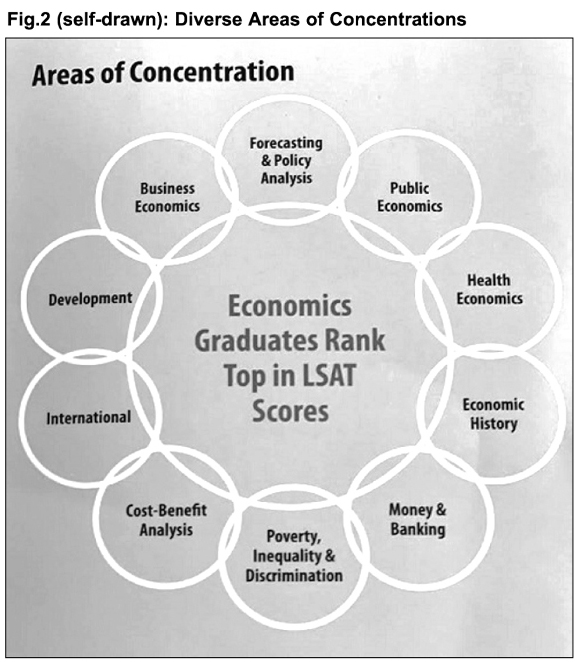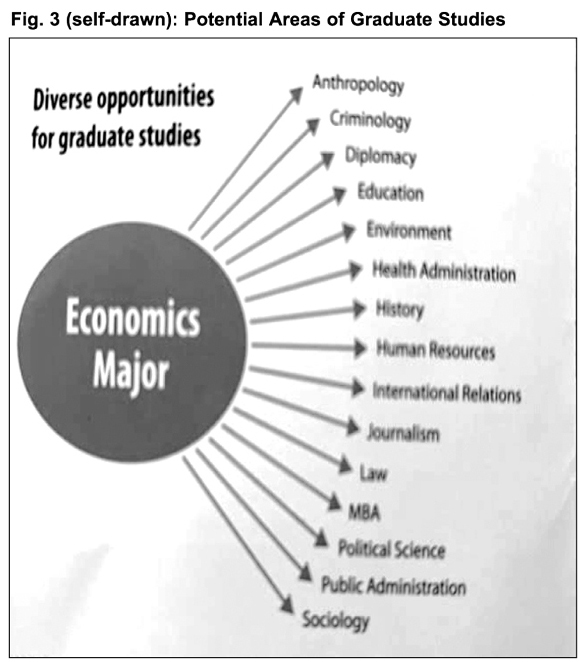
Published :
Updated :

Ever since I received my Ph.D.in economics in 1985, I was often asked by my students and participants in economics conferences as to why did I choose to be an economist - especially after already having degrees in two of the most widely recognised subjects - Physics and Nuclear Engineering (P & NE). Another question that I often explained to my students and others was about the levels of difficulties in the study of Physics vs Economics. Answer to the second question follows first.
At the introductory level physics is relatively more complicated than economics. Advanced economic models that we construct are not universally applicable because of changing assumptions and circumstances unlike the laws of physic (Example: Newton's laws of motion, Einstein's E=mc* 2, (energy equals mass times the speed of light squared) etc. are universal and remain invariant regardless of countries, locations, political system and time. Quantum particles inside the atom behave the same way everywhere. Economic laws on the other hand, are predicated on human to human relationship and the ceteris paribus assumption (that is, everything else remaining constant). In Economics resources are attracted to the production of goods and services which promise the highest returns. This return determines what to produce, how much to produce and for whom to produce. However, these assertions or rules are not invariant to changes of countries, locations, political system and social and cultural environment. These factors make economic policy outcome stochastic in nature while physical phenomenon are deterministic.
My decision to be an economist had evolved over time and circumstance. My economics career would not have happened had it not been for my coming to America in 1977 to study nuclear engineering with an International Atomic Energy Fellowship sponsored by Bangladesh Atomic Energy Commission in 1977. As I was nearing the completion of my M.S. (nuclr. Engr) at North Carolina State University in 1979, I received a phone call from the Economics department of the University of Kentucky, offering me admission into Ph.D. programme with full financial support. I was assured that a letter is in the mail confirming the phone offer. I felt that the success of my application was a divinity predisposed fait accompli. Was it really so? In the letter, I was told that my physics and nuclear engineering GPA along with my mathematics and analytical skill was the precursor to my acceptance into the programme - total absence of prior Economics background was a non-issue.
This article is particularly motivated by Israt Jahan, a student doing her Economics major at East West University, Dhaka. I was immensely impressed by listening to her interest and openness as to why she looks up to a professional career as an Economist. I told her that reading The Financial Express daily will stand her in good stead, enhancing her understanding of real life economic issues whilst augmenting her writing skill in English as dividends. My conversation with Israt has also motivated me to highlight the importance of acquiring some basic economic literacy by the college going children of the participants of the U.S. Monetary Policy discussion session at Bangladesh Bank (Ref: FE article on April 1). All they need is an introductory course in each of macro and micro Economics.
In most American colleges and universities introductory level Mathematics, Economics, and Philosophy are the prerequisites required of students as an integral part of general education curriculum -prior to deciding their major areas of studies. The reasons are that some basic economic literacy gives students the tools for understanding their economic life and how to interpret events that will either directly or indirectly affect them. Nations benefit from having an economically literate population because it improves the ability to comprehend and evaluate critical issues intricately linked to government monetary and fiscal policies.
From an individual perspective, Economics frames many choices we must make about work, vacation, consumption and how much to save. Our lives and living are always influenced by broader economic trends, such as inflation, employment, interest rates, foreign trade, and economic growth. Thus, Economics is truly all around us, encompassing almost every aspect of our lives. Studying the subject gives students a generalist understanding of the world and its inner workings. Students learn everything from how supply and demand interact in determining the price of goods and services, scarce resource allocations to why the average standards of living vary so widely within and between countries. In liberal arts programme in Western Universities Economics has uniquely gained recognition and respectability as an all-embracing applied field, and thus evolved as an unrivaled basis for careers in diverse areas as displayed Fig 1.

According to the Wall Street Journal, "Economics, once considered one of the more difficult subjects for undergraduates to grasp, is the top major at Harvard, Princeton, Columbia, Stanford and the University of Pennsylvania and Chicago; second at Brown, Yale and the University of California at Berkeley; and third at Cornell and Dartmouth." It is being said that if you throw a stone while standing in the middle of the campuses of the universities nationally ranked in the top 20, probability of the stone falling on the head of an Economics major is non-zero.
In recent years, economics has widened in scope and application in many non-traditional fields such as global warming, energy policy and national defense. It has recently encroached into the frontiers of other disciplines and integrated new areas such as public choice economics, involving political issues, law and economics, forensic' economics, sports economics, household economics as well as marriage, divorce, child rearing and so on. You name it, and you will find your life and Economics are virtually intertwined. Fig. 2: gives a glossary of areas of concentrations open to economics majors.

Major law schools in the West view an undergraduate major in Economics as one of the most desirable preparations for success in legal studies because the "economics way of thinking" is methodical, content-rich, succinct, and demanding. It's the, "economics way of thinking" that fostered a new discipline, called "law and economics"- which applies economics rationale to almost all legal questions in class rooms and courtrooms.
In the professional of journalism, a good grasp of basic Economics makes one a versatile editorial and opinion column writer having far-reaching positive influence on government policy makers, people and society.
Economics major (B.A. in economics) prepares students to pursue a professional degree in diverse areas driven by their career goals and interest. Only Economics major facilitates such a diverse option without requiring a second undergraduate degree. Fig. 3 displays this diverse choice.

From a personal standpoint, Economics has made me a more enlightened global citizen than what I would have been with my studies of physics and nuclear engineering. I have acquired the tools for systematic framework for analysing, researching, and op-Ed writing on issues encompassing myriad of complex national and geopolitical issues-- not limited to Economics, Science and Engineering.
Dr Abdullah A Dewan, formerly a physicist and a nuclear engineer at Bangladesh Atomic Energy Commission, is professor of Economics at Eastern Michigan University, USA.
adewan@emich.edu


 For all latest news, follow The Financial Express Google News channel.
For all latest news, follow The Financial Express Google News channel.